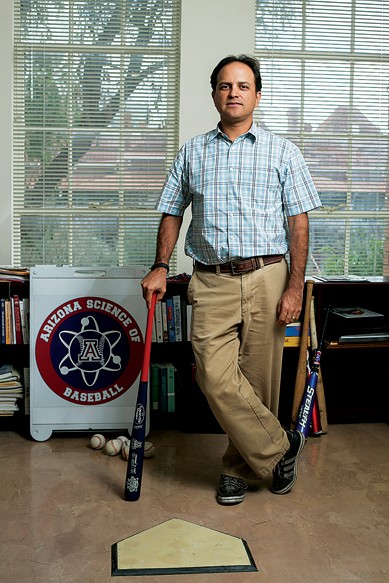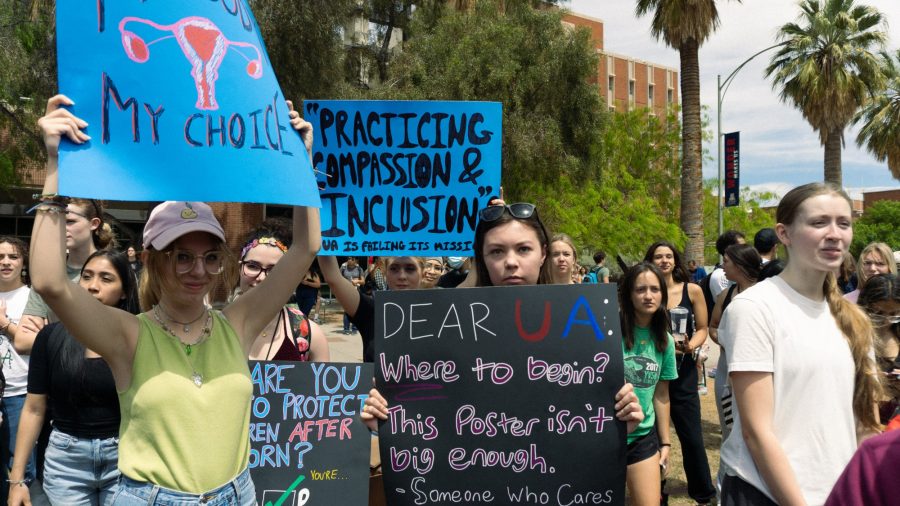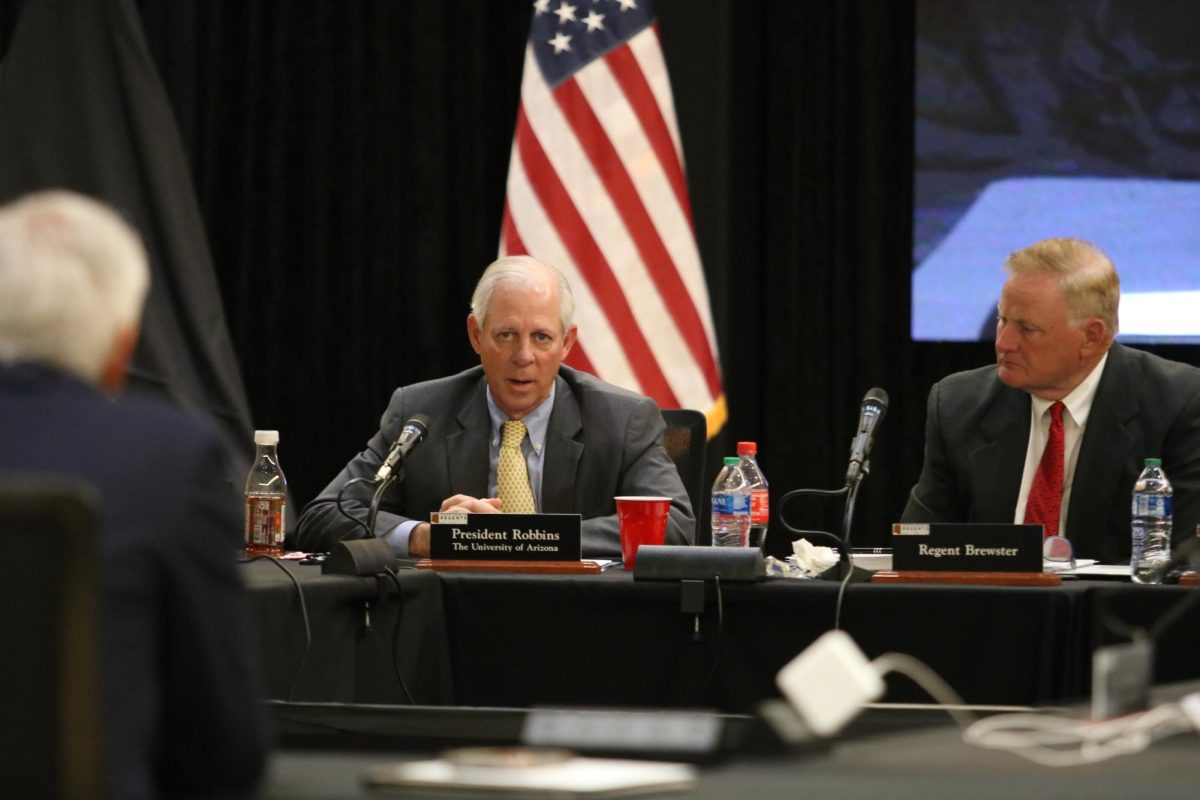A giant water balloon launcher, baseballs and an enormous protractor: these aren’t the ingredients of a disastrous college prank, they’re the means for teaching middle schoolers the importance of math, science and America’s favorite pastime.
Arizona Science of Baseball is a UA club and class with the goal of introducing underprivileged children and adolescents from underperforming schools to the world of math and science.
“We have two main modes of employment,” said Ricardo Valerdi, the club’s founder and a professor in the college of engineering. “One of them is the camps we have for kids.”
At these day camps, the morning is spent in the classroom, where students are taught math, nutrition and other skills that will be useful in their daily lives. After lunch, the students take the field to get a hands-on understanding of the skills they learn in the classroom.
The other mode is teacher training. During the four-hour training sessions, teachers learn how to better instruct their students in complex concepts.
Lesson plans are created using the Common Core State Standards, an initiative to standardize the education received by young students across the U.S., but they look more like playbooks. This allows the teachers to pick and choose which lessons they can use to satisfy their needs in the classroom.
Students taking the honors colloquium are also gaining a unique perspective on the sport, according to engineering freshman Kyle Everly.
“[Baseball] seems like a good sport to go into scientifically,” Everly said, “because the concept is very simple, but there are so many different aspects of it that you can look at.”
The Science of Baseball has partnered with the Arizona Diamondbacks to attempt to reach out to a younger generation of patrons. The club has even created a booklet for the Diamondbacks to help keep kids engaged throughout the whole game by entertaining them with coloring pages, educating them with player statistics and teaching them to keep game statistics of their own.
The kids’ passion for the sport is fostered by students like Maurissa Wortham, an undergraduate student in the College of Engineering. She has been a coach with the club since its creation.
“I started playing baseball at age 3 and softball at age 6,” Worthram said. “I love both sports … [This club] made me realize the importance of these [scientific] concepts, even as a college student.”
Before students make their way to a major league baseball diamond to try their hand at physics, arithmetic and basic geometry, they are expected to empirically derive the answers.
“It’s a bit more hands-on, more, ‘Let’s find out what the answer is,’” Valderi said. “The ‘finding out’ part is the scientific part.”
In traditional classrooms, those with kinesthetic learning styles are often left behind. Valerdi’s approach offers information in a way that is easy for all learners to understand. “I think you’ll capture more [students] if you’re kinesthetic,” Valerdi explained.
“It’s just a matter of admitting that math — you’ve just gotta do it.”
Though the program focuses primarily on middle school students, students at the UA can also participate in the club and enroll in the honors colloquium to reap the benefits.
For Alex Aydt, a biochemisty freshman, Arizona Science of Baseball suited his interests. “It’s a fun sport to watch,” Aydt said. “I’m from St. Louis and the Cardinals are really good right now.”
Worth has found that she can combine her love of baseball, math and science to do something she loves: work with children and young adolescents. Some camps can be difficult, but the coaching staff of Arizona Science of Baseball said they can always find something wonderful in their work.
“I remember one day that was particularly hard,” Wortham said. “The kids’ education level wasn’t quite where we anticipated, so we had to explain everything, and it was pretty stressful. [Then] a little girl came around with her brother and had all the coaches sign her ball. We could tell it was her brother’s, but he was too shy to ask.”









